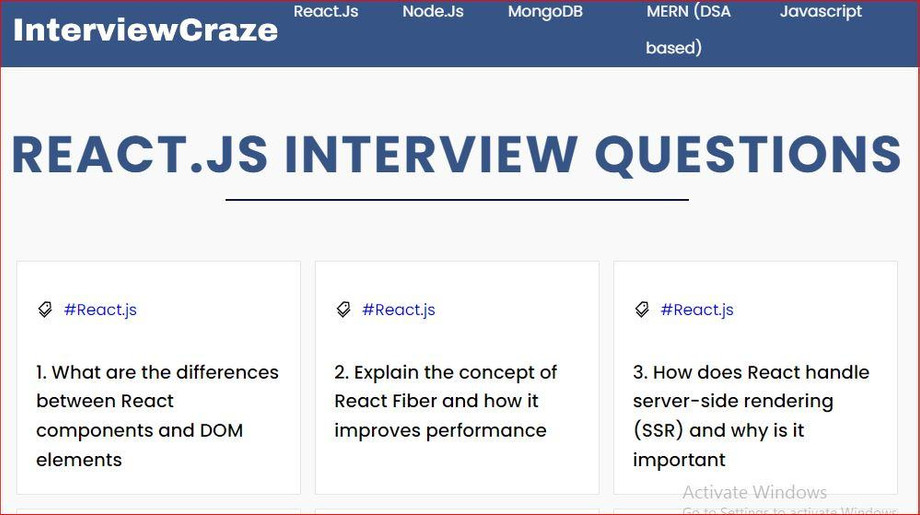React has become extremely popular, as a JavaScript library for creating user interfaces. As Reacts popularity continues to soar frontend developer interviews often include react interview questions related to React to assess a candidate's coding skills.
React Hooks and Context API are relatively advanced React concepts that development teams want senior candidates to demonstrate expertise in. This blog discusses the top React coding questions on Hooks and Context that experienced React devs should prepare for. Read on to get an overview of the key concepts tested in React interviews, sample code snippets, and online editor links to practice.
1. What Are React Hooks and Why Are They Used?
With the introduction of React Hooks, in version 16.8 you can now use state and other React features without having to write class components. These hooks greatly simplify state management in components, making the code more understandable and facilitating testing. Hooks provide a mechanism to share stateful logic across different components without changing the hierarchy of the components. It is important to understand hooks to create modern React applications.
2. Explain the useState Hook in React.
The useState hook is the foundation of state management in functional components. It allows you to inject React state into function components. When you declare a state variable with useState, you receive a pair: the current state value and a function for updating it. The underlying principle of how useState works is essential to comprehend state management in functional components.

3. How Does useEffect Hook Work?
In functional components, side effects are performed through the useEffect hook. The functionality is similar to componentDidMount, componentDidUpdate, and componentWillUnmount in React class lifecycle methods, but it is unified with one API. Managing side effects like data fetching, subscriptions, or manually updating the DOM from React components is impossible without first understanding useEffect.
4. What is the useContext Hook and Its Use Cases?
UseContext hook is a way of creating common data that is accessible at any level of the component hierarchy without the necessity of passing the props manually to each level. ItÕs used to communicate data such as user authentication, themes or language preference between components seamlessly. Understanding useContext is vital for effectively controlling data and communication between components in large React applications.
5. Can You Explain Custom Hooks?
Custom Hooks refer to the mechanism to reuse stateful logic in several components. They enable you to pull component logic into functions that can be reused. A custom Hook is a JavaScript function whose name starts with ÓuseÓ and can call other Hooks. Knowing how to make and use Custom Hooks can significantly reduce the complexity of your component logic and make your code more maintainable.
Conclusion
This guide summarizes expected react coding interview questions around React Hooks and Context API - two key advanced topics for experienced candidates.
Get hands-on practice with React code examples by trying online code editors on InterviewCraze. Solidifying your React concepts with practical coding will help you confidently tackle interview coding challenges.
Learning resources for each topic equip you to master React developer interview questions. InterviewCraze also provides quantified scorecards from mock interviews with Reactjs experts to highlight areas of improvement. Use the platform to refine your React skills until you fully prepare to impress your next interviewers!







Comments